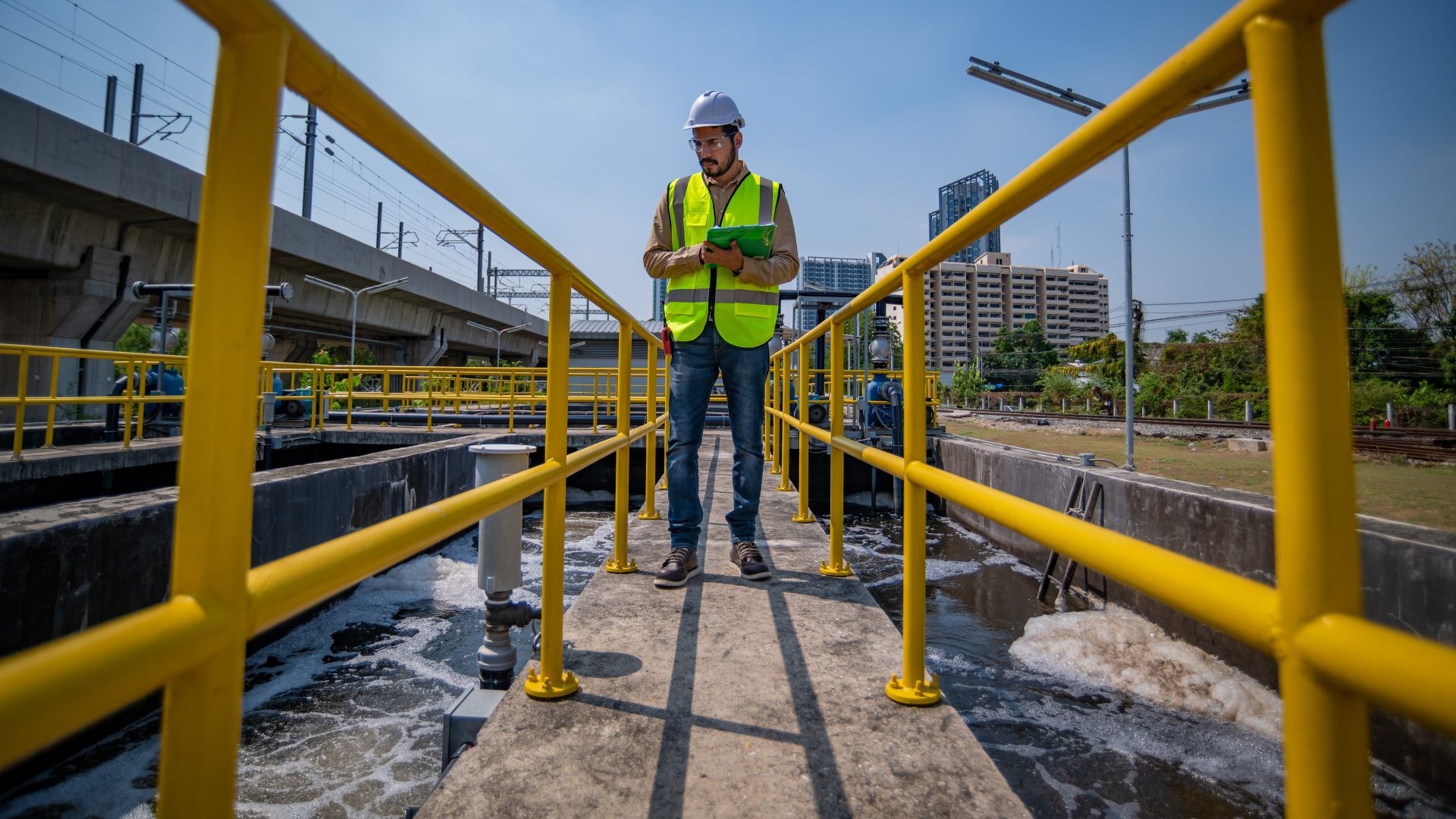Dŵr Cymru Welsh Water has confirmed that it plans to accelerate investment in its network of wastewater assets across Ceredigion to improve river water quality in the Teifi and help protect the wider environment.
Investments include:
- £20m investment in new wastewater treatment works at Cardigan
- £9m investment in 4 other wastewater treatment works in Ceredigion
- £10.5m to reduce the impact of key storm overflows across the county
A key focus of its investment plans will be to fully replace Cardigan Wastewater Treatment Works (WwTW). This follows extensive work in recent years after it was identified that seawater enters the site from the tidal river, especially during spring high tides. This process, known as saline intrusion, affects the treatment process at the site and can result in the Cardigan site not having the capacity needed to deal with wastewater entering the works. This can cause local storm overflows to discharge more than they should into the local estuary, however, bathing waters in the area (Poppit Sands) continue to meet “excellent” water quality standard as monitored by Natural Resources Wales.
Welsh Water has worked with the regulator Natural Resources Wales and international specialist contractors to explore how best to tackle the saline intrusion. This has included introducing techniques and mitigation to reduce the impact of seawater. However, attempts to remove the seawater from the system have had limited success and therefore a full replacement of the works is now required.
The not-for-profit water company is planning to invest £20m to change the process at Cardigan WwTW to ensure the site can cope better with the influx of seawater, helping to reduce the spill frequency from the site.
After carrying out extensive trials and installing two pilot treatment plants at Cardigan, Welsh Water has identified a process using moving bed bio-reactors. This process has proven to be the most effective in reducing the severity of incoming seawater, helping to reduce its impact and improve resilience at the works.
Work to install the new treatment works is due to begin in April 2025, and is expected to be completed by April 2027. In the meantime, Welsh Water is planning to install a temporary package treatment plant this month to help treat some of the stormwater entering the works and this will be in place until work to replace the treatment works at Cardigan is completed.
Welsh Water’s Managing Director of Wastewater Services, Steve Wilson, said:
“We’ve been working hard in recent years to tackle these challenges at Cardigan wastewater treatment works which we do not experience at any of our other sites across Wales to the same extent. This has involved undertaking lengthy and complex investigations and we are sorry that this has taken so long. Having considered how other companies and countries are tackling seawater intrusion into treatment works, which is becoming more common as sea levels rise due to climate change, we have identified that the only sustainable solution involves investing £20 million to replace Cardigan wastewater treatment works.
“This will help ensure that we have capacity at the site to take wastewater and implement measures to prevent the influx of salt water. This in turn will ensure that we treat wastewater efficiently and reduce the number of spills from this site into the estuary. The plans are now being designed and will be delivered from 2025. This is a major investment, but having exhausted all other options to resolve this, we are determined to deliver this for Cardigan and the surrounding communities.”
Welsh Water manages a wide ranging network across the Teifi catchment, with 33 wastewater treatment works, 66 sewage pumping stations and 204 km of sewers, helping to treat safely the wastewater from almost 14,000 households and businesses.
The company has also confirmed investment in its wider network across the Teifi catchment which will include investing nearly £9 million in 4 key treatment works by the end of March 2025, namely Llanybydder (£3.5m), Pencader (£2.8m), Lampeter (£1.3m) and Cwrtnewydd (£1.2m).
This commitment will be supported by a separate investigation programme looking at the impact of storm overflows, which play a key role as relief point to prevent homes and business from flooding across Wales. The outcome of these investigations will see £10.5m invested in the Teifi catchment to prioritise and improve key overflow that have the biggest impact on the environment in the area.
Managing Director of Wastewater Services, Steve Wilson, added:
“Protecting our coastal and river water quality is one of our main priorities at Welsh Water. With a changing climate, there aren’t any quick fixes to the challenges we face but our latest investment plans for in Ceredigion reflect that we are determined to ensure that our assets.”



